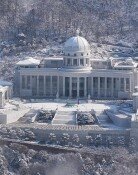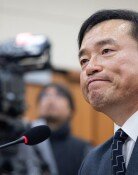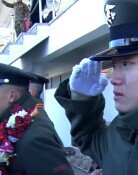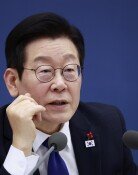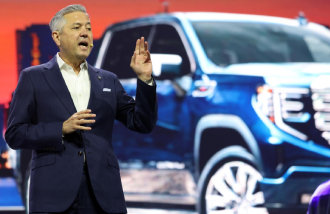Korea-U.S. Give Respectively Dissenting Opinion on Sunshine Policy
Korea-U.S. Give Respectively Dissenting Opinion on Sunshine Policy
Posted February. 05, 2002 09:28,
The conflict between the North and the U.S. instigated by the President Bush`s annual State of the Union Address to Congress was anticipated from the beginning, but the nonchalant response of the Korean government and its lack of countermeasures to the U.S. diplomacy made the situation worse.
Particularly, the current conflict between the North and the U.S. seems to be elongated by the issues of the expiration of the North`s postponement of the missile launch, full-scale nuclear investigation of the North by the IAEA, and the North`s request for the compensation for the delay of the hard-water reactor in the North by the turn of 2003 which face both nations.
Government officials explained that "Considering the past history in negotiations between the North and the U.S. in relation to nuclear power in 1994 and 1998, the current diplomatic crisis between the two countries may continue until next year. We need to take very careful steps from now to solve the problems surrounding the weapons of mass destruction (WMD) raised by the U.S. and to resume the North-U.S. dialogue."
Worries have increased about the U.S. giving a dissenting opinion on President Kim Dae-Jung`s Sunshine policy due to the aggravation of the North-U.S. relationship.
The sudden dismissal of Foreign Minister Han Seung-Soo seems to overcome the current diplomatic crisis. Choi Sung-Hong, vice minister of Foreign Affairs and Trade, was promoted as the new Foreign Minister.
However, a Cheong Wa Dae official explained, "At the Cabinet reshuffling on January 29th, the Foreign Minister was dismissed with the intended principle of returning every congressperson in the Cabinet to the Congress, but his dismissal was postponed since he was working on the diplomatic front. It was not a reprimand for aggravating the North-U.S. relationship."
A government official said that "The problem of the North`s weapons of mass destruction was included in the agenda for the Korea-U.S. summit after the release of the Bush`s annual address." He also disclosed that the agenda will include strengthening the Korea-U.S. alliance, the political situation of the Korean Peninsula including the North-U.S. relationship, and current economic issues.
Jong-Hoon Lee ysmo@donga.com · taylor55@donga.com



